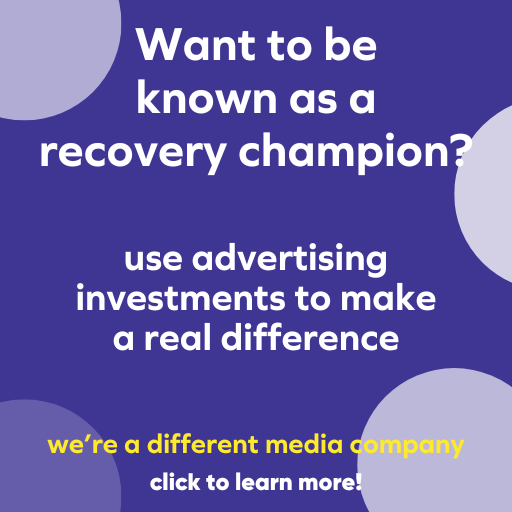Greetings!
We’re talking about home in this issue. At Home—with ourselves and in our physical space.
Google says, “Home means an enjoyable, happy place where you can live, laugh and learn. It’s somewhere where you are loved, respected, and cared for.”
When I fi rst got sober in 1993, I lived in several different residential programs—from a half-way house to a transitional residence—and only after about 18 months did I fi nally get my own apartment.
With each progression of living with others, I experienced love, respect and care — although I’m pretty sure it was only in hindsight that I came to realize it. When I was going through early recovery in sober living, the boundaries and structures seemed restrictive, unfair, and unbearable. But I needed them. I’m not sure at what point I became grateful for what I had, and it may not have happened until I left.
The reality was, I had a roof over my head, guidance in living sober, and direction on how to clean up the mess that I had made with my life. With each move, I learned new skills, new communication styles, and new ways to treat my physical environment and how to work with others and ultimately how to treat myself.
I’ve been in the same home now since 1996, and it has served its purpose well. I raised my kids here (although I think it may still be debatable whether I raised them or they raised me), and both my husband and I have worked from home for decades. Today, I’m grateful for the roots that I have here—in my home and in my neighborhood and in my community.
Not everyone needs a sober living residence. But for those who do, thankfully there are options. We’re excited to shine a light on some of those sober living residences here in Maine—including Maine’s fi rst co-ed sober living residence, El Rancho de la Vida—and provide information for those who may be looking for a place to land.
Our cover story on Maulian Dana, the fi rst Tribal Ambassador to the Penobscot Nation, focuses on how community can be a positive force in personal recovery.
This issue also talks about coming home to our bodies; both Kimble Greene’s article “There’s No Place Like Home” and Niki Curtis’ “Home isn’t There, It’s Here” talk about self-acceptance and how to change the dialogue we can have about ourselves.
I’m still learning to treat my physical body with the love, respect and care that it deserves, with some days being better than others. I’m guessing this will be a lifelong quest, and that’s okay. At least I’ve stopped with the selfloathing that I wasted so many years feeling.
Journey is on a mission to make recovery from addiction visible—every way we can; in print, online, on YouTube (and eventually a podcast!). We recently launched a new YouTube channel, which you can fi nd by typing Journey Enterprises in the search bar. To amplify hope, we’re releasing personal recovery stories each week to celebrate freedom from addiction.
If you’d like to share your story, please reach out to me at carolyn@recovery-journey.com. Your story can shine a light for someone looking for a way out.
With immense gratitude,
Carolyn





